Topics
- active learning (18)
- research assignments (6)
- libraries (1)
- literature-based learning (2)
- multimedia (5)
- museums (6)
- object learning (7)
- online learning (5)
- peer instruction (10)
- storytelling (2)
- learning management system (2)
- syllabus design (3)
- teaching empathy (3)
- teaching fellows (1)
- lecture (3)
- learning goals (8)
- assessment (6)
- data (3)
- backward design (3)
- blended approaches (12)
- case-based learning (8)
- classroom contracts (7)
- classrooms and space (3)
- collaborative learning (27)
- community events (1)
- course transformation (7)
- devices (3)
- learning by making (5)
- discussion (24)
- engaged scholarship (4)
- experiential learning (16)
- feedback (18)
- group work (8)
- guest speakers (7)
- interdisciplinary (6)
- leadership (3)
Send feedback
Subscribe
Copyright © 2024 The President and Fellows of Harvard College | Privacy | Accessibility | Digital Accessibility | Report Copyright Infringement

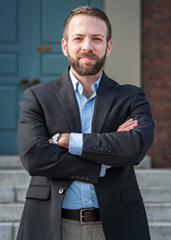 Shai Dromi, Associate Senior Lecturer on Sociology (FAS), teaches courses on philanthropy, activism, and collective identity. Dromi frequently incorporates active learning exercises and collaborations into his courses. In his undergraduate course, Philanthropy and the Nonprofit Sector, he partners with a wide variety of Harvard offices, including
Shai Dromi, Associate Senior Lecturer on Sociology (FAS), teaches courses on philanthropy, activism, and collective identity. Dromi frequently incorporates active learning exercises and collaborations into his courses. In his undergraduate course, Philanthropy and the Nonprofit Sector, he partners with a wide variety of Harvard offices, including 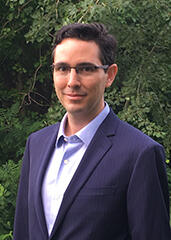 David Atherton, Assistant Professor of East Asian Languages and Civilizations, taught
David Atherton, Assistant Professor of East Asian Languages and Civilizations, taught  Aravinthan D.T. Samuel, Professor of Physics
Aravinthan D.T. Samuel, Professor of Physics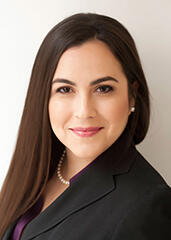 Dr. Monik Jimenez, an Assistant Professor in the Department of Epidemiology, uses different pedagogical approaches to elevate diverse voices and styles of learning. In her
Dr. Monik Jimenez, an Assistant Professor in the Department of Epidemiology, uses different pedagogical approaches to elevate diverse voices and styles of learning. In her 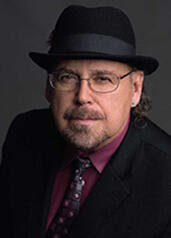 As an historian of religions, Davíd Carrasco, Neil L. Rudenstine Professor for the Study of Latin America, conducts his courses through an ensemble approach, which enables students to learn about complex evidence from a variety of approaches, sources and mediums. This approach contains four parts: (1) using an interdisciplinary intellectual method, (2) incorporating a variety of sources, including artifacts, texts, films, and museum exhibitions; (3) expanding disciplinary perspectives through team teaching and visiting speakers; and (4) organizing diverse student experiences and inviting a range of responses. One example of the ensemble in action is Carrasco’s annual collaboration with the Peabody Museum on their Día de los Muertos exhibition as part of his Gen Ed course,
As an historian of religions, Davíd Carrasco, Neil L. Rudenstine Professor for the Study of Latin America, conducts his courses through an ensemble approach, which enables students to learn about complex evidence from a variety of approaches, sources and mediums. This approach contains four parts: (1) using an interdisciplinary intellectual method, (2) incorporating a variety of sources, including artifacts, texts, films, and museum exhibitions; (3) expanding disciplinary perspectives through team teaching and visiting speakers; and (4) organizing diverse student experiences and inviting a range of responses. One example of the ensemble in action is Carrasco’s annual collaboration with the Peabody Museum on their Día de los Muertos exhibition as part of his Gen Ed course, 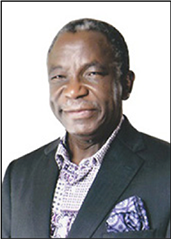 Jacob K. Olupona, Professor of African and African American Studies and Professor of African Religious Traditions, collaborated with students from Harvard Graduate School of Education in 2013 to develop a team-taught course on entrepreneurship that would appeal to learners across the University. “They felt entrepreneurship was important and central to what people are doing.”
Jacob K. Olupona, Professor of African and African American Studies and Professor of African Religious Traditions, collaborated with students from Harvard Graduate School of Education in 2013 to develop a team-taught course on entrepreneurship that would appeal to learners across the University. “They felt entrepreneurship was important and central to what people are doing.” 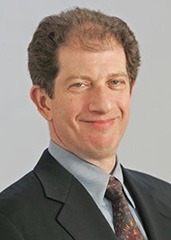 David Garvin, C. Roland Christensen Professor of Business Administration, utilizes guest speakers in
David Garvin, C. Roland Christensen Professor of Business Administration, utilizes guest speakers in